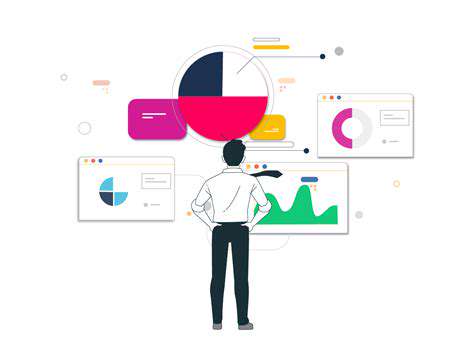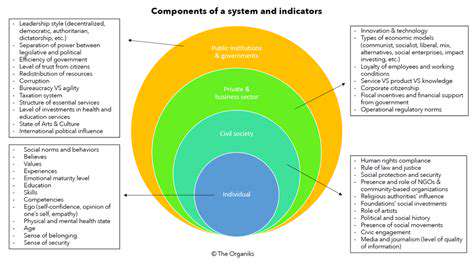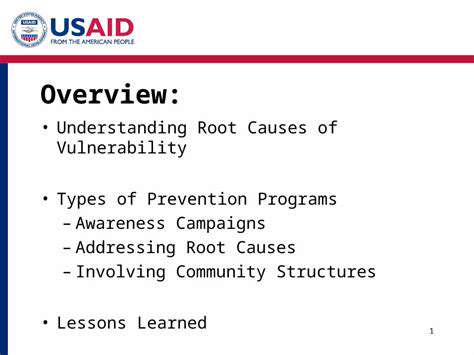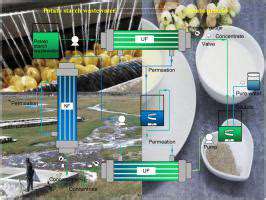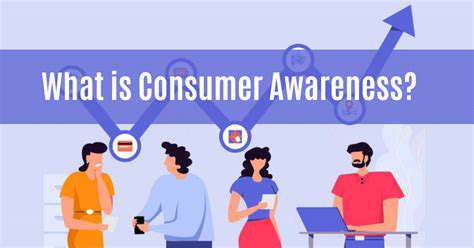The Power of Data in Driving Ethical Transparency
Data-driven decision-making is becoming increasingly crucial in all sectors, from healthcare to finance. By leveraging data analysis, organizations can gain valuable insights into customer behavior, market trends, and operational inefficiencies. This understanding allows for more informed and effective strategies, enabling businesses to improve efficiency and profitability while also contributing to a more sustainable future. This process, however, must be approached with a strong ethical framework.
The ability to analyze and interpret data effectively is only half the battle. Equally important is the ethical application of these insights, ensuring that decisions are made responsibly and fairly. The potential for bias in data sets, algorithmic errors, and the misuse of personal information are just some of the ethical challenges that must be considered.
Identifying and Mitigating Biases in Data
Data sets often reflect existing societal biases, which can inadvertently perpetuate harmful stereotypes and inequalities. Therefore, it is crucial to identify and mitigate these biases in data collection and analysis. This involves careful consideration of the source and representativeness of the data, as well as the potential for bias in algorithms and models.
A critical step in mitigating bias is to ensure diversity and inclusion in data collection. A diverse range of perspectives ensures that the data is more representative of the population it aims to serve. This process will lead to a more accurate and fair reflection of reality.
Transparency and Accountability in Algorithmic Decision-Making
Many modern processes rely on complex algorithms to make decisions, from loan applications to criminal justice risk assessments. Understanding how these algorithms work is critical for ensuring fairness and accountability. Transparency in the decision-making process is essential to Building trust and fostering public confidence.
Accountability mechanisms are also necessary to address potential errors or biases within these systems. Clear lines of responsibility and mechanisms for redress are crucial when algorithmic decisions have significant impacts on individuals or groups.
Protecting Privacy and Maintaining Data Security
In today's data-rich environment, the protection of individual privacy is paramount. Organizations must implement robust security measures to safeguard personal data and prevent unauthorized access or misuse. This includes adhering to data protection regulations like GDPR and CCPA, and ensuring that data is collected, stored, and used in a manner that respects individual rights.
Promoting Equitable Access to Data and Resources
Data-driven decision-making should not exacerbate existing inequalities; rather, it should promote equitable access to resources and opportunities. This means ensuring that data is collected and analyzed in a way that benefits all members of society, not just a select few. Furthermore, mechanisms need to be in place to address potential disparities in access to technology and digital literacy.
The ethical use of data requires a commitment to fairness, transparency, and accountability. Implementing these principles will help build trust and ensure that data-driven decisions truly benefit society as a whole.
Data-Driven Accountability and Responsibility
Data-Driven Decision Making
Data-driven accountability and responsibility are fundamentally linked to the ability to make informed decisions. By leveraging data analysis, organizations and individuals can move beyond assumptions and gut feelings, instead basing choices on demonstrable evidence and trends. This approach fosters a culture of transparency and reason, essential for ethical decision-making across all sectors, from business and government to individual personal choices.
Measuring Performance and Impact
Data provides the crucial metrics to measure performance and track the impact of actions. Whether it's monitoring the effectiveness of a marketing campaign, evaluating the success of a social program, or assessing the environmental footprint of a business, quantifiable data allows us to understand what works, what doesn't, and how to adjust strategies for optimal results. This measurable feedback loop is critical for continuous improvement and responsible stewardship.
Identifying and Addressing Inefficiencies
Data analysis can unearth hidden inefficiencies and bottlenecks within systems, processes, and organizations. By identifying patterns and anomalies through data, we can pinpoint areas where resources are being wasted, processes are slow, or outcomes are suboptimal. This knowledge is then actionable, enabling organizations to streamline operations, optimize resource allocation, and improve overall efficiency, thereby promoting accountability.
Promoting Transparency and Openness
Data-driven accountability necessitates transparency and openness. When decisions are based on demonstrable data, the reasoning behind them becomes clear and accessible. This transparency fosters trust and allows stakeholders to understand the rationale behind choices and actions. In turn, this contributes to a more ethical and accountable environment where everyone can see the impact of their actions and decisions.
Enhancing Stakeholder Engagement
Sharing data insights with stakeholders can foster greater engagement and collaboration. By communicating the data-driven rationale behind decisions, organizations can build trust and understanding. This fosters a sense of shared responsibility and allows stakeholders to actively participate in shaping outcomes, further strengthening the culture of accountability.
Strengthening Ethical Frameworks
Data-driven accountability can be a powerful tool for strengthening ethical frameworks. By analyzing data on past ethical breaches or instances of wrongdoing, organizations and individuals can identify patterns and develop strategies to prevent future issues. This proactive approach to using data to reinforce ethical standards is a crucial step in building more responsible and trustworthy systems.
Building Trust and Credibility
Ultimately, data-driven accountability and responsibility build trust and credibility. When decisions are demonstrably grounded in data, it fosters a sense of reliability and trustworthiness among stakeholders. This, in turn, strengthens reputations, enhances relationships, and promotes a culture of ethical conduct across all levels of an organization or community. This reliability is critical for long-term sustainability and success.
AI-powered image recognition systems are rapidly evolving, moving beyond simple object detection to encompass more complex tasks. This advancement allows for the identification and classification of intricate patterns within images, enabling applications such as medical diagnostics, automated quality control in manufacturing, and even the creation of personalized learning experiences. The ability to interpret and understand nuanced visual information is crucial for unlocking new possibilities in various sectors.
Building Trust Through Data-Driven Communication
Understanding the Foundation of Trust
Building trust is a fundamental aspect of ethical communication, and data plays a crucial role in establishing that foundation. data-driven insights allow us to understand our audience's needs, concerns, and values more deeply. By analyzing patterns and trends, we can tailor our communication to resonate with them on a more personal level, fostering a sense of shared understanding and creating a stronger connection. This deeper understanding translates into more effective and ethical communication, as we are better equipped to address their concerns and meet their expectations.
Furthermore, demonstrating transparency and accountability in how we utilize data is essential. Clearly outlining the sources and methods of data collection, analysis, and presentation builds credibility and fosters trust. When individuals understand the process behind the information, they are more likely to accept and trust the conclusions derived from the data. This transparency is a cornerstone of ethical communication, allowing us to build a foundation of trust based on integrity and reliability.
Data-Driven Communication Strategies for Ethical Impact
Using data effectively in communication requires a strategic approach, focusing on how to utilize the insights to make ethically sound choices. Data can reveal biases in our messages and help us identify and mitigate potential harm. By recognizing these biases, we can adapt our communication strategies to ensure they are inclusive, respectful, and fair to all stakeholders. This data-driven analysis is vital for achieving ethical outcomes in our communication efforts.
In addition to identifying potential biases, data can help us understand the impact of our communication. By tracking engagement metrics and feedback, we can refine our messages and adapt them to meet evolving needs and expectations. This iterative process, fueled by data analysis, allows us to continuously improve the ethical impact of our communication, ensuring it resonates effectively and fosters positive relationships.
Another critical aspect of data-driven communication strategies is the responsible use of data visualization. Effectively representing complex data in clear and understandable ways is essential for conveying meaningful insights. However, using data visualizations that are misleading or incomplete can be deeply unethical and harmful. Ethical communicators must ensure visualizations are accurate, unbiased, and designed to support, not distort, the message.
Measuring and Maintaining Ethical Standards in Data Communication
Establishing clear metrics for evaluating the ethical impact of data-driven communication is crucial. These metrics should encompass factors such as inclusivity, fairness, transparency, and accountability. Regular evaluations of our communication practices against these standards can help identify areas for improvement and ensure ongoing ethical conduct. By using metrics, we can measure the success of our data-driven communication strategies in achieving ethical outcomes.
Maintaining ethical standards requires continuous vigilance and adaptation. The world and its challenges are constantly evolving, and data-driven communication strategies must adapt to keep pace. This includes staying informed about emerging best practices, ethical frameworks, and technological advancements related to data analysis and communication. Regularly reviewing and updating our ethical guidelines and protocols, as well as seeking feedback from stakeholders, is essential for maintaining high ethical standards.
